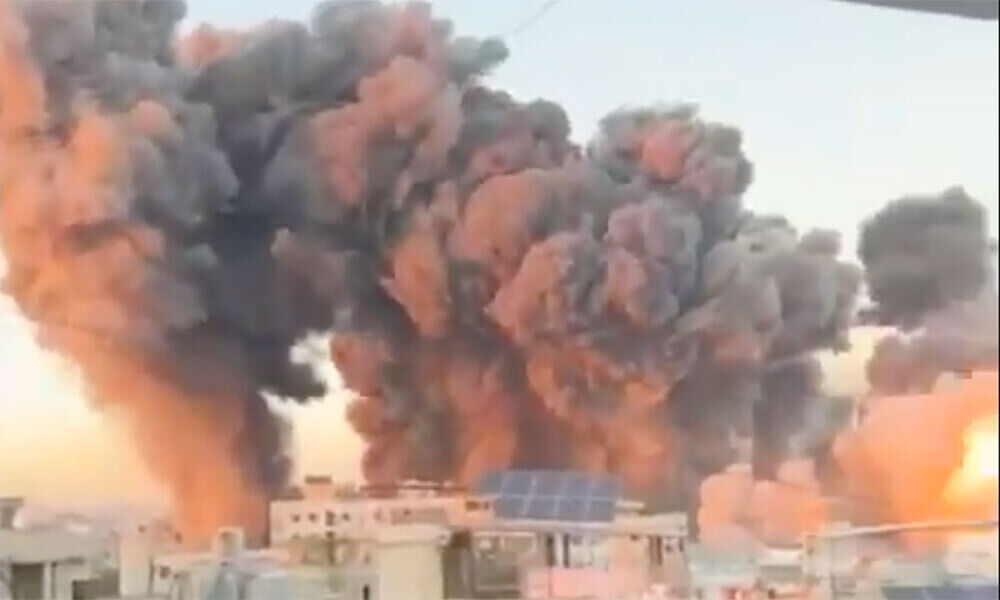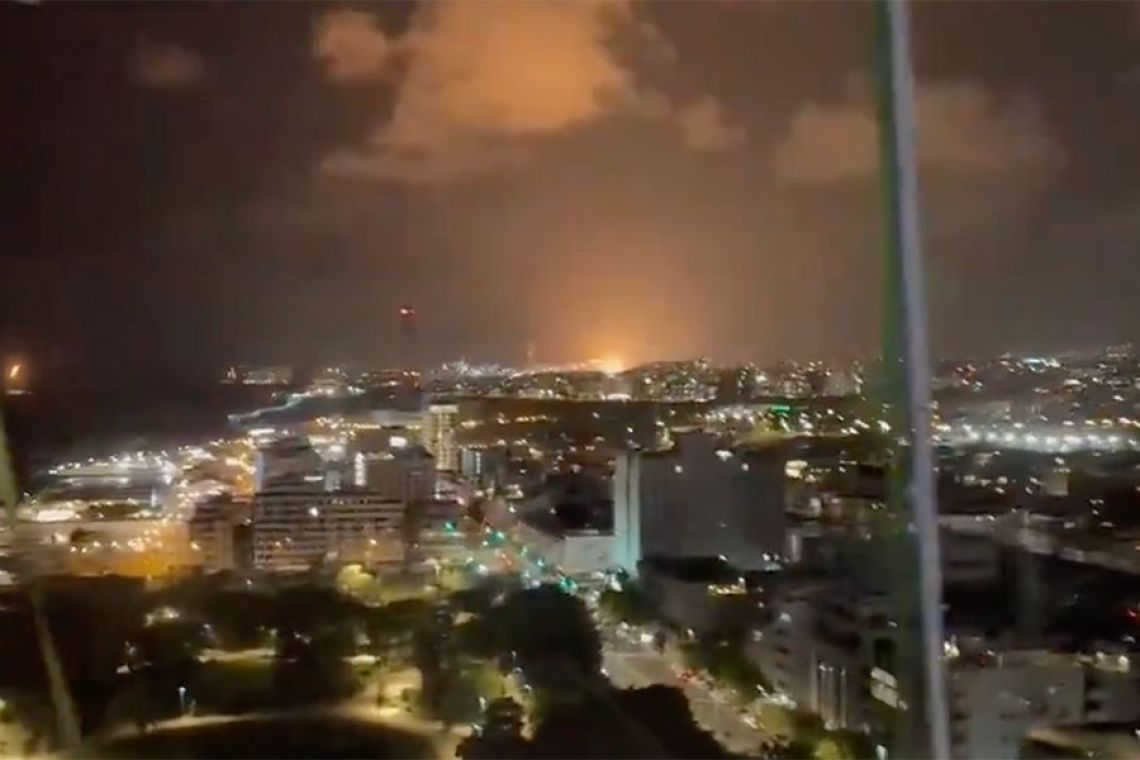Iran has finally responded to Israel's repeated provocations with a massive missle salvo.
After Israel's mass-casualty terrorist attack on Lebanon—using weaponized pagers and walkie-talkies—and a brutal bombing campaign that left nearly 600 Lebanese dead, Netanyahu, after speaking at the UN where he delivered a bellicose speech, ordered a decapitation strike on Hezbollah's leadership. F-16 fighter jets dropped 86 2,000-pound bunker buster bombs on six apartment buildings. To put this into perspective, this is the equivalent force of two Hiroshima bombs! The first wave collapsed the buildings, the second wave cleared the debris, and the third wave penetrated deep into an underground bunker where a high-ranking Hezbollah meeting was taking place. Sheikh Nasrallah's body was found intact, but he died from the blunt force shock caused by the explosions. This was followed by a series of brutal strikes, primarily on southern Lebanon, and eventually a limited invasion of parts of the region.

The moment of the assassination of Sheikh Nasrallah and the Hezbollah leadership. Hundreds of civilians were killed as well.
Hezbollah was reeling from the blow, while Israel rejoiced. Western politicians and mainstream media supported the narrative, applauding the destruction, while Lebanon declared three days of mourning.
Heated debates broke out in Lebanon between different factions, questioning whether Hezbollah was dragging Lebanon into an unnecessary war. Some critical voices blamed Iran for using Hezbollah and then abandoning them.
Now, Bibi Netanyahu wants and needs a war, and he has decided to launch it, confident of U.S. support.
Neither Hezbollah nor Iran sought to escalate the conflict. Iran's newly elected president, Masoud Pezeshkian, had called for a "new era of cooperation" during his UN speech. He refrained from retaliating after the assassination of Ismail Haniyeh and kept the door open for dialogue with the U.S. Sheikh Nasrallah also restrained his forces. But it takes two to tango, and Israel was not willing.
The decapitation strike forced Iran’s hand. Last night's missile strikes were their response. 180 rockets of various types were fired at Israel, hitting Nevatim Airbase, the Mossad HQ, and other targets. Hypersonic missiles were also launched. Video footage suggests that most rockets penetrated Israel's Iron Dome defense system. Israeli media will likely downplay the damage inflicted. This missile strike was a much stronger response than the previous one. Iran signaled that, for them, the message had been sent, vengeance had been dealt, and the issue was now settled.
However, Israel is now crying out for revenge, and it doesn't seem like they will stop there. The country is facing an existential crisis. Israel's war on Gaza has now dragged on for a full year, devastating Gaza, killing tens of thousands of Palestinians, pulling 200,000 reservist IDF soldiers from their jobs, and damaging Israel's global standing—while none of its military objectives have been fulfilled.
Netanyahu is now diverting public attention from this fiasco by creating another major crisis. As Mike Tyson famously said, "Everyone has a plan until they get punched in the face." Israel has not yet faced Hezbollah's full fighting force, nor the Iranian army.
Israeli soldiers who fought in the 1982 Lebanon war described fighting Hezbollah as like battling ghosts—they never even saw a fighter. Israel may face a similar fight again. Hezbollah now has at least 30,000 highly motivated, well-trained, and well-equipped fighters who have learned advanced warfare tactics during the war in Syria. This is not the same force that Israel encountered in 2006 when they were forced out of Lebanon.

Israel's first casulty in this Lebanon war Captain-Eitan-Oster (photo-credit--SECTION-27A-COPYRIGHT-ACT)
Iran, a nation of 88 million people, has once again demonstrated that its hypersonic missiles can easily penetrate Israel's air defenses. This is also a signal to the U.S., which will now be more cautious about deploying its navy in the region. With a frail Joe Biden in the White House, Israel seems to have strong control over the U.S. Senate and Congress. With elections looming in November, all parties need AIPAC support and donor money—yet they are also wary of an economic collapse, especially if oil prices hit $90 per gallon due to the destruction of Middle Eastern oil facilities or the blockade of the Strait of Hormuz.
Iran doesn’t want war, Lebanon doesn’t want war, and the Palestinians don’t want war. Israel’s old strategy of imposing its will through maximum deterrence—Jabotinsky's "Iron Wall" ideology—no longer works. Israel can strike its neighbors as hard as it wants, but it won’t be able to defeat them: not the Palestinians in Gaza, not Hezbollah in Lebanon, and not the Iranians. This conflict has the potential to spark a third world war, with the West backing a maniac in Jerusalem and the BRICS countries supporting Iran.
What is the exit strategy?
For Benjamin Netanyahu, the only option is a crushing defeat of Iran. But he might destroy the entire region and, with it, bring about the destruction of Israel.


